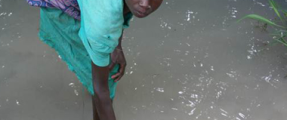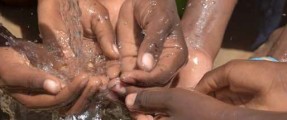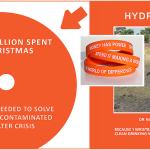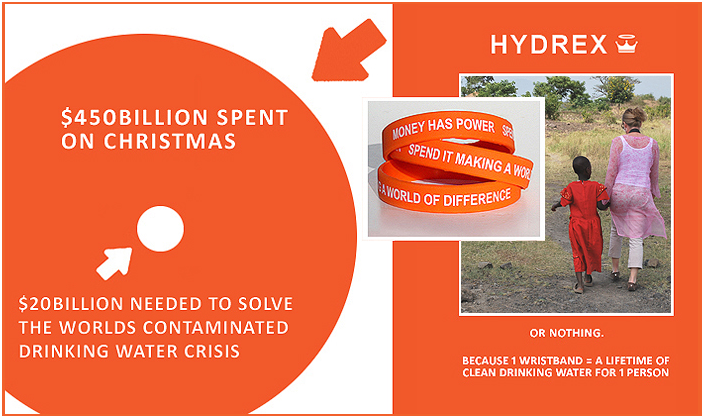$25,828.93 Funded 09/01/2022. Completing Summer 2022
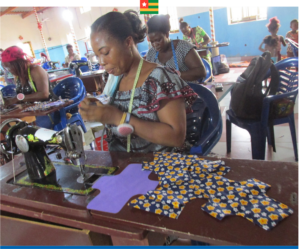
WHO/WHERE/WHAT
Training 50 girls and 50 female caregivers (100 total participants) in Tanzania Africa how to sew sanitary pads so they can manage their monthly periods and generate income.
WHY
Feminine Hygiene Creates Barriers for Girls
Young women in Tanzania are at risk for long-term socioeconomic, educational and social exclusion, also known as “period poverty.” Due to the embarrassment and frequent infections associated with menstruation, girls sometimes isolate themselves at home during their period, missing many days of school. When it comes to menstrual hygiene, schools create a challenging setting. Often, girls cannot safely manage their periods because they lack of private, secure toilets, clean water for sanitation and aordable hygiene products. As a result, they have frequent and recurring absences, and may even drop out of school altogether. This disruption can have a profound impact on their opportunity for financial success and independence as young adults. This intervention can help break the cycle of poverty by helping young women stay in school, increase their earning potential and build their self confidence.
Tanzanian women often lack access to feminine hygiene products because they live far from stores and it is too costly to buy single-use, disposable products every month. Women often turn to using old cloths, corn husks or other materials they have handy, which in turn can lead to embarrassing leaks, odors and even serious bacterial or fungal infections. With these challenges, young women miss school and work during menstruation, impacting their access to education, income and independence. Thanks to your support, these hurdles will become more manageable as women in Olkolili are equipped with the skills and resources they need to take charge of their monthly cycles.
The Opportunity for Income Generation
PEFA Olkolili Student Center, in partnership with Days for Girls, intends to teach young women how to sew reusable sanitary pads. This will help girls remain in school, retain their self-esteem and reduce instances of infectious diseases caused by improper management of their monthly periods. A training center will be added to the PEFA Olkolili church, and 50 girls and 50 female caregivers will learn general tailoring skills, focusing on how to make reusable pads.
Women will not only be able to make pads for their own use, but also establish small businesses to make and sell them in their community. The church intends to run the training center and support it financially and technically in future. To allow it to run independently, pads will be sold and community members will also be given an opportunity to learn the skills provided. Thank you for partnering with Compassion to change the lives of young women in this community.
HOW
Carrying out this important intervention will involve the following key elements:
- Hold planning meetings for church leaders, child development center staff, participants and parents.
- Review bids and select a contractor to complete
- Build the classroom and procure sewing materials and equipment for start up.
- Teach participants basic sewing skills and produce first batch of pads.
Anticipated Outcomes
Training 50 girls and 50 female caregivers (100 total participants) to make reusable pads will have a tremendous impact on the lives of women living in Olkolili. They will be empowered to take control of their menstrual cycles with the knowledge and materials to make their own feminine hygiene products. By helping girls retain their dignity and confidence, their health, outlook on education and opportunities for self- sufficiency should increase.
These young women will also be able to sell the products they make in their community, thus giving other women access to affordable feminine hygiene products. Finally, women in this community will be taught general tailoring skills that may benefit them more generally as they search for income-generation opportunities. The hope is to see the participants trained and a 10% decrease in school absenteeism among girls by June 2023.
Compassion’s Frontline Church Partner, in coordination with the national country office, has carefully planned and considered all aspects of budgeting for this critical intervention. Below is a summary of the overall need for this important effort.
|
Budget Items |
Total Expense |
Local Contribution |
Funds Requested |
|
Building Materials |
$18,950.92 |
$2,142.74 |
$16,808.18 |
|
Building Labor |
$1,937.17 |
$0 |
$1,937.17 |
|
Sewing Equipment, Materials and Start-up Costs |
$5,662.99 |
$0 |
$5,662.99 |
|
Training |
$1,420.59 |
$0 |
$1,420.59 |
|
Total |
$27,971.67 |
$2,142.74 |
$25,828.93 |
*This budget covers all program, administration and fundraising costs commensurate with Compassion’s corporate guidelines.
